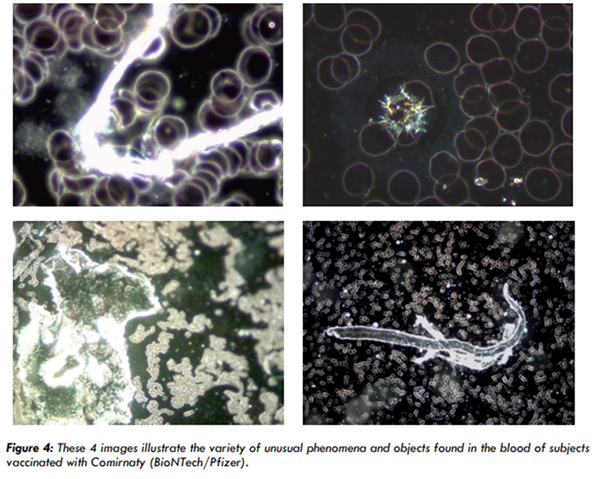 Parler
Parler Gab
Gab
Lifestyle changes and tea consumption
The test group took part in an eight-week treatment program that included guidance on health-related factors like:- Eating habits
- Exercise
- Relaxation
- Sleep routines
- Supplementation with probiotics (healthy microbes in your gut) and phytonutrients (beneficial compounds found in plants)
Reasons to start drinking oolong tea
In an article, Dr. Kara Fitzgerald, one of the co-authors of the study, explained that oolong tea contains a plant compound called epigallocatechin gallate (EGCG). Research has shown that EGCG can help protect against Alzheimer’s disease, cancer, heart disease, high blood pressure, insulin resistance and obesity. Other studies also suggest that drinking oolong tea daily offers several health benefits. In a review article published in May 2022 in the peer-reviewed journal Food Science and Human Wellness, scientists reported that oolong tea has "antioxidant, anti-inflammatory, anti-cancer, anti-biotic, and anti-obesity properties." Additionally, oolong tea was found to improve the gut microbiome and protect the heart and liver. "In spite of its popularity in Asian countries, studies on health promoting effects of oolong tea and its characteristic compounds … have attracted limited attention as compared to the knowledge of preventative and therapeutic effects of green and black teas," said the study authors. Most of the studies compiled in the review were controlled laboratory experiments on rodents, but the broad benefits of oolong tea on human health have also been observed in other studies. Experts believe that these health benefits could be due to theasinensins, a spectrum of important compounds in tea. Theasinensin A is a natural compound found in oolong tea. In a 2015 study conducted on the chemistry and health benefits of oolong tea and theasinensins, scientists found that the different processing methods for the tea plant Camellia sinensis change these molecules in various ways. Using certain methods produces different biochemical effects in different tea types like black, green and oolong tea. Theasinesins help stabilize your blood sugar, which is an anti-diabetic effect. The compounds may also help athletes recover more quickly from vigorous exercise. Oolong tea also contains gamma-aminobutyric acid (GABA), another beneficial compound, along with theanine. Both substances complement the caffeine tea so when you drink oolong you feel calm, clear-headed alertness instead of the jittery energy that comes with drinking coffee. With data that confirmed the benefits of GABA and after finding a market for GABA-enriched foods in Asia, researchers discovered a way to multiply the amount of GABA in tea by letting it ferment in nitrogen gas. The process helps keep oxygen out. GABA-enriched teas are produced in Japan and Taiwan and these products are popular in both countries. In a 2019 study, scientists looked into the effects of GABA-enriched oolong on heart health and stress levels. They monitored participants' hearts with EKGs. The participants were also asked about their current feeling of stress and given tests of mental arithmetic as a stressor. After drinking one cup of oolong tea, with half GABA-enriched and half regular, the perceived stress levels of the volunteers were significantly lower after consuming GABA-enriched tea, Their heart rate variability was also lower and this is significant since it is an important metric of heart health and fitness, especially in response to stress.Oolong tea: A light and delicious tea
Oolong means "black dragon" in Chinese and the tea comes from China. It is especially popular in Taiwan. Most teas are made from the plant Camellia sinensis and depending on how the plant is processed, it can become black, green, oolong, pu-erh, white or yellow tea. Green, white and yellow teas are processed with sundrying and heating. These processes don't oxidize the tea leaves. However, black tea is fully oxidized and the oxidation process happens before the tea leaves are processed. On the other hand, oolong tea is only partially oxidized by at least 10 to 70 percent. The partial oxidation gives oolong tea a softer, woodier flavor. Some oolongs are so lightly oxidized that they may taste like green tea but a little more mellow. Other oolongs that are mostly oxidized have a warm, muted flavor. While each variety is different, several oolong teas contain less caffeine than black teas.Considerations before drinking oolong tea
Like other superfoods, oolong tea must be consumed in moderation. It's also best not to drink oolong on an empty stomach because it can make you feel hungry and dizzy, an unpleasant state that Chinese people call "tea drunk." If you want a good night's sleep, don't drink oolong tea within three or four hours of your bedtime. Even if oolong tea has calming effects, it still contains caffeine that can make you jittery and make it harder to fall asleep. Drink oolong tea while it's still warm for the most delicious tea-drinking experience. To make oolong tea, use clean-tasting water. Oolongs thrive with full-boiling or just-off boiling water. Brew the tea for short amounts of time. Savor oolong teas in a series of small infusions to appreciate their changing character as you drink. This means using at least a minimum of five grams of tea per 100 milliliters of water. For darker oolongs, you can use as many as eight to 10 grams for that same volume, then steep them in a series of short 30-second infusions. Adjust as you make your tea. Maintain healthy habits like exercising regularly, eating a balanced diet and drinking oolong tea daily to boost your overall well-being. Visit Superfoods.news to learn more about tea and other nutritious foods with amazing health benefits. Watch the video below to know more about oolong tea. This video is from the Natural Cures channel on Brighteon.com.More related stories:
Researchers explore the antidiabetic properties of black tea. Honeybush tea is a nutrient-rich, antioxidant-filled, heart-healthy drink from South Africa. How can drinking black tea benefit people with diabetes? Sources include: TheEpochTimes.com SeriousEats.com Brighteon.comNew emails reveal deep ties between Jeffrey Epstein and former CEO of JPMorgan, Barclays
By Ramon Tomey // Share
Scientists discover HIDDEN PHARMACY in ancient limestone caves
By Kevin Hughes // Share
The science is undeniable: Face masks do NOT stop covid transmission
By Ethan Huff // Share
Study shows cherries can promote weight loss, boost heart health and treat gout
By Zoey Sky // Share
Governments continue to obscure COVID-19 vaccine data amid rising concerns over excess deaths
By patricklewis // Share
Tech giant Microsoft backs EXTINCTION with its support of carbon capture programs
By ramontomeydw // Share
Germany to resume arms exports to Israel despite repeated ceasefire violations
By isabelle // Share









